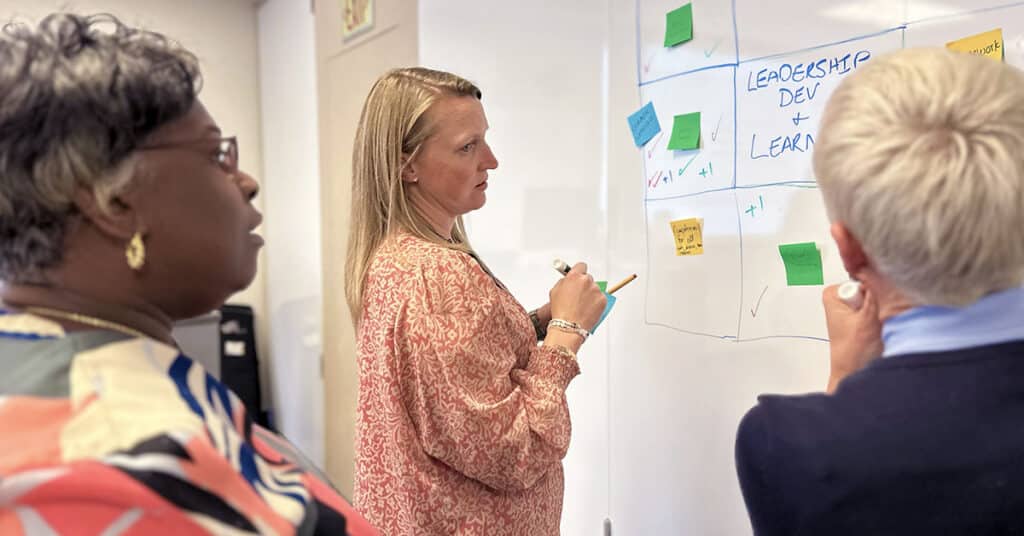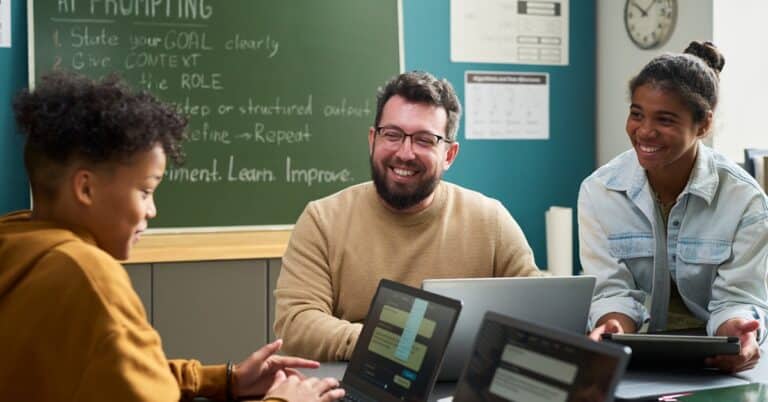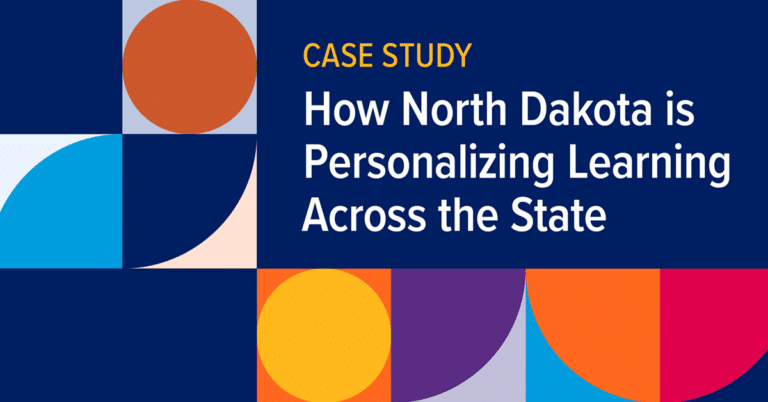As schools and districts across the country strive to create learning environments that are engaging, flexible and responsive, the need to empower educators at all levels of the system to be changemakers has become increasingly vital.

The Portrait of a Leader initiative emerged from a widely articulated truth among those moving toward student-centered learning practices: to achieve meaningful change, you must cultivate a community of educators – teacher leaders, instructional coaches, principals, district administrators and other instructional leaders – that possess the skills and mindsets that foster innovation and can sustain momentum.
“Our goal is to empower educators to lead innovation and collaborative action,” said Casey Lefler, an instructional integration specialist at Rock Hill Schools in South Carolina. Lefler, who has served multiple districts pursuing personalized, competency-based learning since 2016, is a member of the Lead for Learners steering committee that is spearheading the project. “We need to develop more educators who are not only visionaries but have the adaptive skills to guide schools toward lasting transformation.”
Drawn from across eight states, the Lead for Learners steering committee identified key priorities for KnowledgeWorks’ national network of educators. Through their discussions, it became evident that one of the most significant barriers schools and districts face in achieving sustainable systems change was leadership capacity. This realization led to the development of the Portrait of a Leader project, which will serve as a foundational resource for professional learning supports offered through KnowledgeWorks’ Lead for Learners network.
“This process has been incredibly collaborative,” said Laura Hilger, a KnowledgeWorks teaching and learning senior director who is helping to lead the initiative. “To create a Portrait of a Leader that truly reflects the needs of those at the forefront of systems transformation, we have to engage educators from across the country. It’s essential that the final portrait be a shared vision that is built from the ground up.”
The project mirrors the way KnowledgeWorks engages with a learning community to create a shared vision for its students in a Portrait of a Learner. Likewise, the Portrait of a Leader aims to establish a common language and shared vision that schools and districts can use to guide competency-based leadership development. To ensure the Portrait of a Leader resonates widely, the project plan includes an analysis of existing transformational leadership resources, as well as surveys and focus groups to gather insights from teachers, administrators, instructional coaches, state agencies, school board members, community members and learners.
On October 8, more than 40 educators convened virtually to further refine and prioritize these attributes and begin to define the specific characteristics, qualities or competencies. The idea of transformational leadership – taking a systems approach to transformational change that emphasizes innovation, sustainability and alignment to community goals and values – and a human-centered approach resonated as a priority for many. Deanna Holman, implementation facilitator with the Muskegon Area Intermediate School District in Michigan, surfaced the idea that educators and leaders “make the most progress” when they focus not on what they can’t do, but what they can do, modeling the kind of growth mindset everyone within the system needs to realize their visions for teaching and learning.
The Portrait will be further refined during a design session at the FullScale annual symposium.
The Portrait of a Leader is more than just a document; it’s a movement toward reimagining leadership in education. By capturing the essence of what it means to be a transformational leader, this initiative will empower educators to take bold steps in creating the schools and districts of the future. And the needs, interests and strengths of students remain at the center of the work. Laronica Maurer, formerly a school climate and equity education programs professional at the Nevada Department of Education and one of the attendees at the virtual design workshop, said it best:
“Everyone within a school has the ability to be a leader,” Maurer said. “With student-centered learning, it takes a better understanding of what co-facilitation looks like for an educator, for a principal. We should empower students and leverage all the strengths within a school.”





